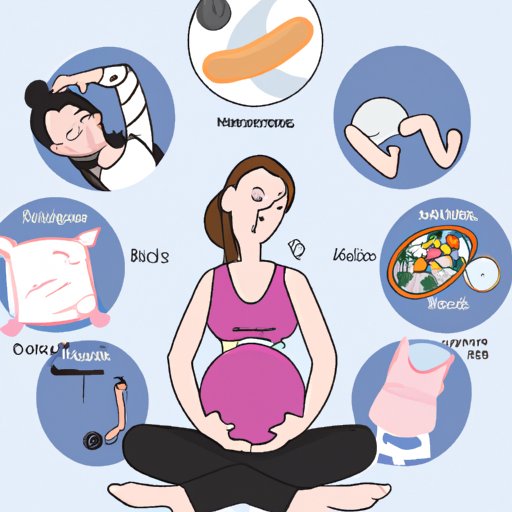Introduction
Miscarriage is the spontaneous loss of a pregnancy before 20 weeks gestation. It is estimated that up to 25% of pregnancies end in miscarriage, making it a common occurrence in the early stages of pregnancy. While there is no way to guarantee a successful pregnancy, there are certain steps you can take to reduce your risk of miscarriage.

Regularly Visit Your Doctor or Midwife
One of the best ways to ensure a healthy pregnancy is to make regular visits to your doctor or midwife. During these visits, your healthcare provider will monitor your health and the development of your baby. They may also perform tests to check for any potential problems or complications.
Benefits of regular check-ups include:
- Early detection of any medical issues
- Assessment of fetal growth and development
- Opportunity to ask questions and address any concerns
During each visit, your doctor or midwife will likely measure your fundal height (the distance from the top of your uterus to your pubic bone), take your blood pressure, and listen to your baby’s heartbeat. They may also order additional tests if necessary.
Eat a Balanced Diet
Eating a balanced diet is essential for maintaining a healthy pregnancy. Make sure to include plenty of fresh fruits, vegetables, lean proteins, whole grains, and low-fat dairy products in your diet. Nutrients such as folate, iron, and calcium are especially important for pregnant women. You may need to take a prenatal vitamin supplement to make sure you are getting enough of these nutrients.
It is also important to avoid certain foods during pregnancy. These include raw or undercooked meats, unpasteurized dairy products, raw eggs, processed luncheon meats, and fish that contain high levels of mercury. Unwashed produce can also contain harmful bacteria, so make sure to wash all fruits and vegetables before eating them.
Exercise Regularly
Exercise is not only good for your overall health, but it can also help reduce your risk of miscarriage. Low-impact activities such as walking, swimming, and yoga are some of the best exercises for pregnant women. Aim for at least 30 minutes of moderate exercise per day, but be sure to talk to your doctor before beginning an exercise program.
If you find yourself feeling too tired to exercise, try taking a brisk walk or doing some gentle stretching. Even a few minutes of physical activity can help boost your energy and improve your mood.
Avoid Stress and Practice Relaxation Techniques
Stress can have a negative impact on your pregnancy, so it is important to take steps to reduce stress levels. Try practicing relaxation techniques such as deep breathing, progressive muscle relaxation, and guided imagery. Taking breaks throughout the day and getting plenty of rest can also help you stay calm and relaxed.
If you are having trouble managing your stress, don’t hesitate to reach out for help. Talking to a therapist or support group can provide valuable resources and emotional support.

Avoid Certain Habits and Activities
There are certain habits and activities that should be avoided during pregnancy, as they can increase the risk of miscarriage. These include smoking, drinking alcohol, using recreational drugs, and exposure to toxic substances. Bed rest is also not recommended, as it can lead to weakened muscles and decreased circulation.
In addition, it is important to avoid strenuous activities such as contact sports, heavy lifting, or long periods of standing. If you must lift something heavy, be sure to use proper lifting techniques and get help whenever possible.
Conclusion
Miscarriage can be a devastating experience, but there are steps you can take to reduce your risk. Regular check-ups with your doctor or midwife can help detect any potential problems early on. Eating a balanced diet, exercising regularly, avoiding stress, and avoiding certain habits and activities can also help ensure a healthy pregnancy.
For more information, speak to your doctor or midwife. You can also visit the website of the American College of Obstetricians and Gynecologists for additional resources and information.
(Note: Is this article not meeting your expectations? Do you have knowledge or insights to share? Unlock new opportunities and expand your reach by joining our authors team. Click Registration to join us and share your expertise with our readers.)
